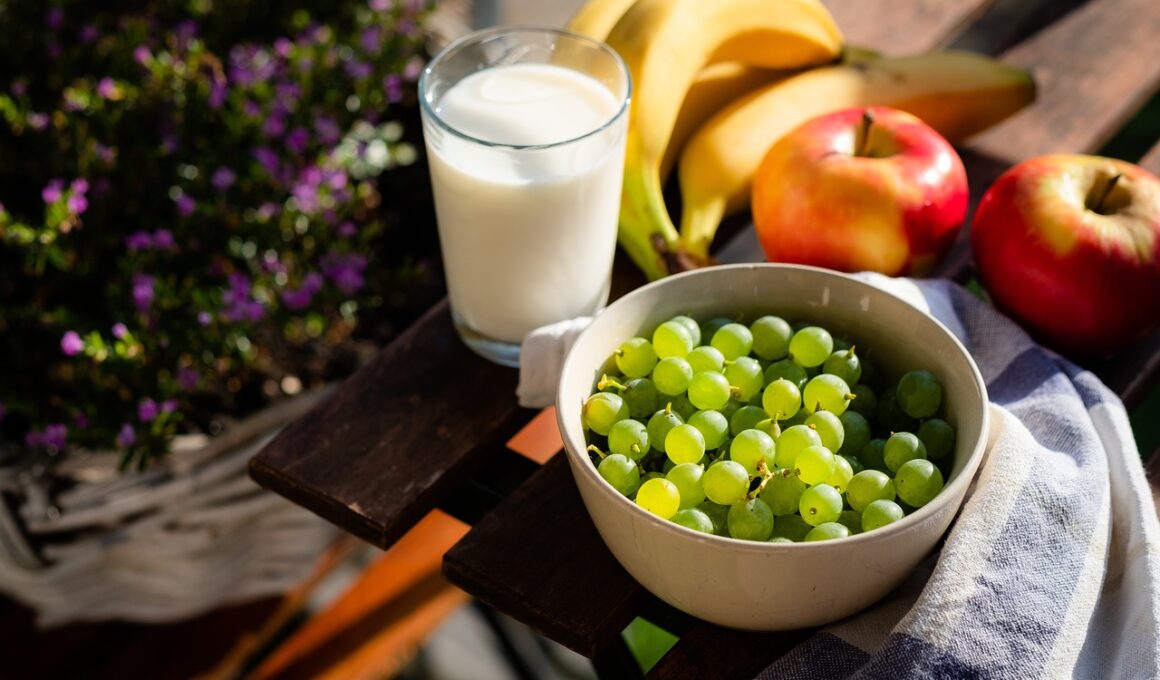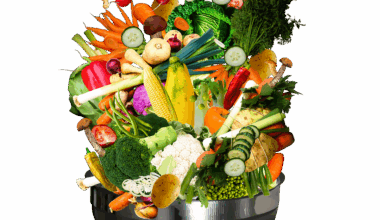Healthy Meal Plans to Support Your Outdoor Workout Goals
When engaging in outdoor workouts, you must prioritize nutrition. A well-structured meal plan can significantly enhance performance and recovery. Start with a balance of macronutrients: carbohydrates for energy, protein for muscle repair, and fats for long-lasting fuel. Incorporate whole foods, such as fruits, vegetables, whole grains, lean meats, nuts, and seeds. Avoid processed foods high in sugars and unhealthy fats, which can hinder performance. Hydration is equally important; drink plenty of water throughout the day. Aim for a pre-workout snack that combines carbs and protein to energize your body, such as a banana with peanut butter or yogurt with berries. After workouts, focus on refueling with nutritious meals, incorporating lean proteins and complex carbohydrates, like grilled chicken with quinoa. Always listen to your body’s hunger signals and adjust portion sizes according to your activity level. Maintaining a food diary can help you track your consumption, making it easier to identify what fuels your workouts best. Remember that everyone’s nutritional needs differ, and consider seeking advice from a nutritionist for tailored guidance.
A crucial part of outdoor workout nutrition is timing meals effectively. Consuming meals at the right times can optimize your energy levels and recovery. Pre-workout nutrition should focus on easily digestible carbs for quick energy. Aim to eat one to three hours before working out to allow your body to digest the food adequately. Foods like oats, fruit smoothies, or rice cakes work well. On the other hand, post-workout meals are essential for recovery. After exercising, you should aim to consume a balanced meal containing protein and carbs within 30 minutes to two hours. Options include a protein shake with fruit, grilled fish with sweet potatoes, or scrambled eggs with whole-grain toast. These meals help replenish glycogen stores and repair muscle tissues effectively. Also, incorporating micronutrients like vitamins and minerals into your diet is essential for overall health and performance. Foods rich in antioxidants, like berries and leafy greens, can help reduce inflammation and support recovery from intense workouts. Don’t overlook the importance of variety in your diet to ensure you receive a wide array of nutrients.
Plan your meals weekly to make outdoor workout nutrition more manageable. Creating a grocery list will help you stay on track and avoid unhealthy impulse purchases. Consider including nutrient-dense foods that align with your workout goals. Prepared snacks, such as trail mix, vegetable sticks, or energy bars, are also great options. You can maintain energy levels during workouts by having these ready to go. Meal prepping can simplify your weekly routine. Cook large batches of healthy meals and portion them into containers to grab on busy days. For example, grill chicken breasts, cook quinoa, and steam a variety of vegetables. Mix and match these ingredients for tasty, balanced meals throughout the week. Regularly rotate your recipes to keep mealtime interesting and nutritious. Don’t forget to listen to your body’s taste preferences; enjoying what you eat enhances consistency. You can also experiment with herbs and spices to boost flavor without adding extra calories. Adjust your meal plan as needed to align with changing workout goals, seasons, or lifestyle changes, ensuring your nutrition remains supportive and effective.
Hydration Strategies for Outdoor Activities
Hydration during outdoor workouts cannot be overstated. Optimal fluid intake supports performance and prevents dehydration. Keep in mind that hydration needs vary based on factors like weather, workout intensity, and duration. A good rule of thumb is to drink at least 8 to 10 cups of water daily, more on active days. Consider using electrolyte drinks if you engage in prolonged aerobic activities or sweat significantly. These drinks replace vital electrolytes lost during intense workouts. Before a workout, hydrate well, particularly if you’re exercising in hot or humid conditions. Try to drink around 16 ounces of water two hours before your session. During workouts lasting over an hour, aim to consume 7 to 10 ounces of fluid every 10 to 20 minutes. Post-workout hydration is equally crucial; consume water or electrolytes to recover quickly. Monitor your urine color as a hydration indicator – light yellow suggests adequate hydration, while dark yellow can indicate dehydration. Proper hydration can improve your endurance, reduce fatigue, and enhance recovery, crucial for outdoor activities.
Healthy snacks play a vital role in complementing nutrition plans for outdoor workouts. Snacking wisely provides an energy boost, enhances metabolism, and prevents fatigue during prolonged activities. Choose snacks that are nutrient-rich to help sustain energy levels. Consider portable options like nut butter packs, protein bars, or fruits like apples and bananas. These provide a quick source of carbs and protein, perfect for pre or post workouts. If you have more time to prepare, making your energy bites with oats, honey, nuts, and seeds can be nutritious and delicious. Understand your body’s specific energy needs when selecting your snacks; if you have an intense workout planned, you may need more carbs. Alternatively, prioritize protein snacks for muscle recovery after strength training. Always balance your snacks with hydration, ensuring you maintain both energy levels and overall hydration. Remember, consuming snacks that are too high in sugar can lead to energy crashes, so focus on whole food options. By integrating nutritious snacks, you’ll enhance your ability to perform well in outdoor workouts.
Keeping your energy levels consistent during outdoor workouts is essential for achieving your fitness goals. Meal composition plays a huge role in determining your stamina and performance. Focus on eating a balanced diet throughout the day which includes sufficient carbohydrates, proteins, and healthy fats. Whole grains, fruits, and vegetables should form the basis of your carbohydrate intake, providing sustained energy release. Eating smaller, more frequent meals can help maintain energy levels, countering the urge to overeat after long workouts or during recovery periods. Consider incorporating lean sources of protein like chicken, turkey, tofu, or legumes into your meals. Healthy fats can come from avocados, nuts, or olive oil, and they play a significant role in energy storage and hormone production. Experiment with different portion sizes and meal frequencies to find an approach that aligns with your workout schedule. The timing of meals also matters; aim for a mix of protein and carbs before a workout for energy and after for recovery. Customizing your nutrition to fit your specific needs is fundamental to success in your outdoor fitness journey.
Conclusion: Achieving Balance in Nutrition
Ultimately, nutrition for outdoor workouts is about finding balance and what works best for your body. A well-rounded meal plan tailored to your specific goals enhances your performance and expedites recovery. Stay mindful of what you eat, when you eat, and how food interacts with your workouts. Strive to include a variety of foods in your meal plan to ensure adequate nutrient intake. It may take some time to find the right combination of meals and snacks that suit your individual requirements, but consistency is key. Use tools like food tracking apps to monitor your intake, scrutinize portion sizes, and ensure adherence to your meal plan. Solicit advice from nutritionists if needed, as they can provide valuable insights tailored to your needs. Always ensure you’re enjoying the foods you incorporate into your diet. Remember, the journey to improving your outdoor workouts through nutrition is ongoing, and adjustments may be required as you progress. Stay flexible and open-minded, allowing you to find the most effective nutrition strategies for your outdoor fitness objectives.
Incorporating meal variety is not just about flavor; it creates an engaging and sustainable eating habit. By implementing these strategies and staying mindful of your nutrition, you will be well on your way to achieving your outdoor workout goals with energy and enthusiasm.


